
Propane is a three-carbon alkane with the molecular formula C3H8. It is a gas at standard temperature and pressure, but compressible to a transportable liquid. A by-product of natural gas processing and petroleum refining, it is commonly used as a fuel in domestic and industrial applications and in low-emissions public transportation. Discovered in 1857 by the French chemist Marcellin Berthelot, it became commercially available in the US by 1911. Propane is one of a group of liquefied petroleum gases. The others include propylene, butane, butylene, butadiene, isobutylene, and mixtures thereof. Propane has lower volumetric energy density, but higher gravimetric energy density and burns more cleanly than gasoline and coal.
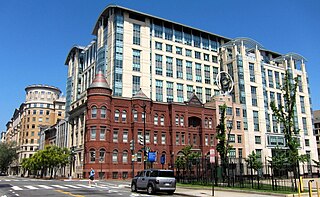
The National Academies of Sciences, Engineering, and Medicine (NASEM), also known as the National Academies, is a congressionally chartered organization that serves as the collective scientific national academy of the United States. The name is used interchangeably in two senses: (1) as an umbrella term or parent organization for its three sub-divisions that operate as quasi-independent honorific learned society member organizations known as the National Academy of Sciences (NAS), the National Academy of Engineering (NAE), and the National Academy of Medicine (NAM); and (2) as the brand for studies and reports issued by the unified operating arm of the three academies originally known as the National Research Council (NRC). The National Academies also serve as public policy advisors, research institutes, think tanks, and public administration consultants on issues of public importance or on request by the government.

American Automobile Association is a federation of motor clubs throughout North America. AAA is a privately held not-for-profit national member association and service organization with over 60 million members in the United States and Canada. AAA provides services to its members, including roadside assistance and others. Its national headquarters are in Heathrow, Florida.

Liquefied petroleum gas, also referred to as liquid petroleum gas, is a fuel gas which contains a flammable mixture of hydrocarbon gases, specifically propane, n-butane and isobutane. It can sometimes contain some propylene, butylene, and isobutene.
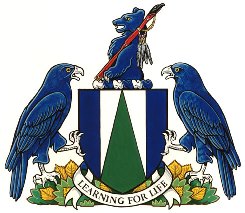
Athabasca University (AU) is a Canadian public research university that primarily operates through online distance education. Founded in 1970, it is one of four comprehensive academic and research universities in Alberta, and was the first Canadian university to specialize in distance education.

Alternative fuels, also known as non-conventional and advanced fuels, are fuels derived from sources other than petroleum. Alternative fuels include gaseous fossil fuels like propane, natural gas, methane, and ammonia; biofuels like biodiesel, bioalcohol, and refuse-derived fuel; and other renewable fuels like hydrogen and electricity.

Diving medicine, also called undersea and hyperbaric medicine (UHB), is the diagnosis, treatment and prevention of conditions caused by humans entering the undersea environment. It includes the effects on the body of pressure on gases, the diagnosis and treatment of conditions caused by marine hazards and how relationships of a diver's fitness to dive affect a diver's safety. Diving medical practitioners are also expected to be competent in the examination of divers and potential divers to determine fitness to dive.
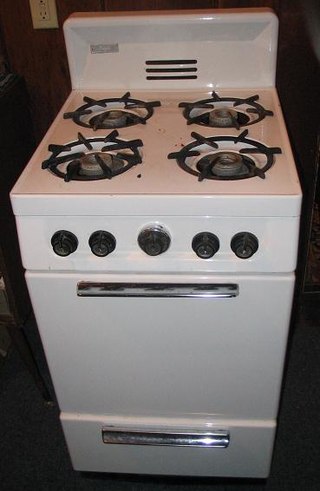
A gas stove is a stove that is fuelled by combustible gas such as natural gas, propane, butane, liquefied petroleum gas, syngas, or other flammable gas. Before the advent of gas, cooking stoves relied on solid fuels such as coal or wood. The first gas stoves were developed in the 1820s and a gas stove factory was established in England in 1836. This new cooking technology had the advantage of being easily adjustable and could be turned off when not in use. The gas stove, however, did not become a commercial success until the 1880s, by which time supplies of piped gas were available in cities and large towns in Britain. The stoves became widespread on the European Continent and in the United States in the early 20th century.
Continuing medical education (CME) is continuing education (CE) that helps those in the medical field maintain competence and learn about new and developing areas of their field. These activities may take place as live events, written publications, online programs, audio, video, or other electronic media. Content for these programs is developed, reviewed, and delivered by faculty who are experts in their individual clinical areas. Similar to the process used in academic journals, any potentially conflicting financial relationships for faculty members must be both disclosed and resolved in a meaningful way. However, critics complain that drug and device manufacturers often use their financial sponsorship to bias CMEs towards marketing their own products.

The California Public Utilities Commission is a regulatory agency that regulates privately owned public utilities in the state of California, including electric power, telecommunications, natural gas and water companies. In addition, the CPUC regulates common carriers, including household goods movers, limousines, rideshare services, self-driving cars, and rail crossing safety. The CPUC has headquarters in the Civic Center district of San Francisco, and field offices in Los Angeles and Sacramento.

The Michigan Department of Natural Resources (DNR) is the agency of the state of Michigan charged with maintaining natural resources such as state parks, state forests, and recreation areas. It is governed by a director appointed by the Governor and accepted by the Natural Resources Commission. Currently the Director is Scott Bowen. The DNR has about 1,400 permanent employees, and over 1,600 seasonal employees.
FortisBC is a Canadian owned, British Columbia based regulated utility providing natural gas, and electricity. FortisBC has approximately 2,600 employees serving more than 1.2 million customers in 135 B.C. communities and 58 First Nations communities across 150 Traditional Territories.
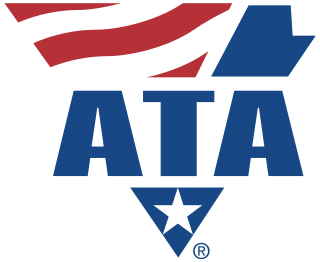
The American Trucking Associations (ATA), founded in 1933, is the largest national trade association for the trucking industry. ATA represents more than 37,000 members covering every type of motor carrier in the United States through a federation of other trucking groups, industry-related conferences, and its 50 affiliated state trucking associations. Former Governor of Kansas Bill Graves was replaced by Chris Spear as the ATA's president and CEO in July 2016.
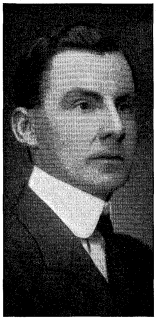
Walter Otheman Snelling was a chemist who contributed to the development of explosives, ordnance, and liquefied petroleum gas.
The National Propane Gas Association (NPGA) is an American trade association representing and advocating on behalf of the U.S. propane and renewable propane industries. Propane has a low-carbon content, has no methane emissions, is nontoxic, and is designated an approved clean, alternative fuel under the Clean Air Act Amendments.
National Alternative Fuels Training Consortium (NAFTC) is a national training organization with its headquarters located in Morgantown, West Virginia. NAFTC is a West Virginia University program founded in 1992. Its objective is to decrease the United States' dependence on foreign oil and improve air quality through the use of advanced technology vehicles and alternative fuels.

Chongqing University of Science and Technology is a university located in the Shapingba District of Chongqing City supported by the Chongqing Municipal People's government, the China National Petroleum Corporation, the China Petrochemical Corporation, and the China National Offshore Oil Corporation. The university's programs focus on petrochemicals, metallurgy, machinery, materials, electronics, and environmental protection with courses offered in science, engineering, economics, management, law, literature, and the arts.

The Commercial Spaceflight Federation is a private spaceflight industry group, incorporated as an industry association for the purposes of establishing ever higher levels of safety for the commercial human spaceflight industry, sharing best practices and expertise, and promoting the growth of the industry worldwide. Issues that the Commercial Spaceflight Federation work on include, but are not limited to, airspace issues, FAA regulations and permits, industry safety standards, public outreach, and public advocacy for the commercial space sector.

Sanusi Mohammed Ohiare is an Economist, Researcher, Energy Expert and astute Fund Manager; with 15 years experience of proven leadership and Management abilities in Public Service; Strategic planning; Public Private partnerships; Funds Mobilisation and Management; Education and Change Management. He has been a member of the ruling All Progressives Congress, APC in Nigeria since 7th February, 2014.

Kamillah M. Hanks is an American politician and New York City Council Member for the 49th District on the North Shore of Staten Island.















